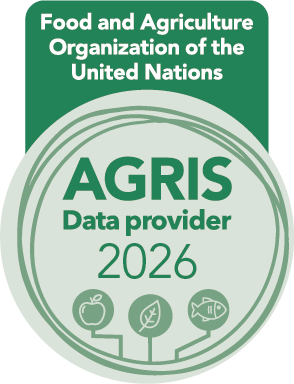Resurgence of scientific research in the University of Zulia
Abstract
Scientific research in Venezuela is still suffering the effects of the economic crisis the country is going through and the aftermath of the different adverse pandemic scenarios. The lack of budget allocation by the responsible official organisms and the little economic incentive for the university community, which represents the most dense population that develops these activities, added to the deterioration and in many cases disappearance of the facilities destined for this purpose, have caused them to decline; this has caused a decline of more than 50 % at the national level and in Universidad del Zulia, which in the not too distant past was positioned in the first place of the national universities in terms of accredited researchers in the researcher's incentive program (PEII) and in second place in scientific production.
While it is true that the exodus of Venezuelans brought brain drain and that LUZ has been greatly affected in this particular, the brave university students who have rooted in their hearts the POST NUBILA PHOEBUS (After clouds, the sun) and that under an act of rebellion against adverse situations, demonstrate their sense of belonging and love for the institution, have taken the challenge to revive research at the Universidad del Zulia, demonstrate their sense of belonging and love for the institution, have taken the challenge to revive research at the Universidad del Zulia by the hand of the Consejo de Desarrollo Científico y Humanistico (CONDES) of the Red de Investigación Estudiantil de LUZ (REDIELUZ) and the various research centers living within the university.
It has not been, nor will be, an easy road to follow, but there is always LUZ at the end of the road and it is expected that the actions being taken by the Ministerio de Ciencia y Tecnología through the Observatorio Nacional de Ciencia, Tecnología e Innovación (ONCTI) through the census of research and development units in the country and the various calls for both records of researchers and funding for projects, represent an important help in the beginning of this arduous task. Emphasizing that from the base of each research center it is necessary the self-management of resources through alliances and inter-institutional agreements with the public and private sector.
The administration of the School of Agronomy is contemplating the consolidation of a sustainable faculty, which will allow it to function over time with a certain economic independence in the areas of teaching, research and extension, thanks to the management of resources through strategic alliances and cooperation agreements for the provision of services and research. It is the task and commitment of all of us who make life in it to work to achieve this goal.
In the Instituto de Investigaciones Agronómicas of the Facultad de Agronomía and the different laboratories attached to it, we are committed to the total reactivation, management and handling of scientific research in order to continue generating new knowledge and training high-level professionals in the agricultural sector. Among the actions to be taken are the revision and adaptation of the lines of research, encouraging the scientific community to resume the formal registration of research projects, which allows us to keep statistical control of these activities and make a diagnosis of the needs that have priority in order to provide support for the continuation of the projects. A call is currently open for the subsidy of research projects in the area of Maize, whose economic resources come from the surplus of the I Jornada Internacional de Especialidades Agronómicas en Maíz and the contribution of the company DIPROAGRO, which shows that alliances with companies and the agricultural sector is a viable alternative to strengthen research at the undergraduate and postgraduate level within the faculty.
Now, while it is true that encouraging research at all levels is a priority, it is also a priority to ensure the dissemination of these research products that are generated within and outside the university and the country, so in that particular, we have the Revista de La Facultad de Agronomía de La Universidad del Zulia, which this year reached its fifty-fifth anniversary and whose editorial quality is meeting the most demanding standards of the international scientific environment, maintaining and obtaining new indexing in numerous prestigious indexes such as Scielo, Science Citation index, Latindex, REDIB, Dialnet, among others, and in one of the largest databases of abstracts and citations of peer-reviewed scientific literature such as Scopus, which has allowed a significant projection, visibility, scope and prestige worldwide. Since 2021 it has a completely English edition and from 2022 with a continuous publication format, minimizing waiting times for publication. All this achieved thanks to the hard work of the editorial committee led by Dr. Jorge Vilchez, thus contributing to the long-awaited resurgence of scientific research at LUZ.
We are convinced that with good planning and by establishing strategic lines that allow us to strengthen scientific and technological productivity, we will be able to recover and even surpass the place that the Universidad del Zulia occupied in the ranking indexes in terms of scientific productivity both inside and outside the country.
Downloads
Copyright (c) 2024 Alexandra Vera

This work is licensed under a Creative Commons Attribution-NonCommercial-ShareAlike 4.0 International License.




















